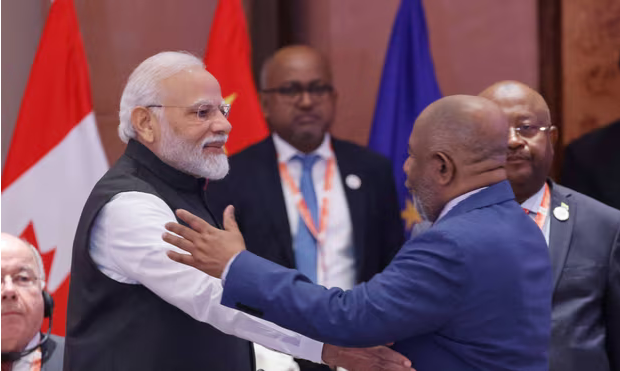The G20 is an intergovernmental group comprising nineteen sovereign countries, along with the European Union and the African Union. The major objectives of the G20 are to address issues related to the global economy and ensure international financial stability, climate change, and sustainable growth and development amongst member countries.
Currently, the G20 represents over 80% of the world’s economy, making it the main multilateral platform for global economic and financial cooperation. On 9th, September 2023 African Union was made a permanent member of the G20 during the New Delhi summit in India.
Despite the African Union having many smaller multinational platforms within the continent, Africa alone has 1.5 billion people with many emerging economies and natural resources that have been a target of multinational forums over the years.
However the continent recently has largely remained on the receiver side rather than decision-making on the global stage, with the African Union now a permanent member of G20, Africa is expected to change as an object of decision-making at the G20 on its part of the global body to enormously expand its legitimacy and representativeness.
Without a voice at the table, Africa has thus remained a passive receiver than an active contributor to discussions, shaping its economic destiny, thus decisions that are not responsive to the needs of African Union member states, the G20 policies in Africa over three years have fallen short due to lack of African representation, rendering decisions that are inefficient, slow and ambiguous. Africa’s excursion from the G20 over the years has disproportionately affected low-income countries within the continent.
The entry of the African Union into the G20 is expected to provide a platform for the African agenda on the world global stage on matters that concern international cooperation. The G20 is expected to help Africa bring in measures that can be adopted by the African Union to enormously contribute to countering African illicit financial flows from Africa estimated at $88.6billion, this comes from African policies that include unlawful activities, tax evasion, corruption, and embezzlement.
Besides African Union membership can provide Africa an opportunity to redress the void created by the reduced role of the UN on the continent especially in policy making. Since the formation of the G20, it has become a major locus of international economic and development decision-making platforms. African Union membership should enable Africa to wake up to the loss of the diminishing role of the United Nations on the African continent.
Kamukama Rukundo Clinton is a Ugandan pan-Africanist, author, and columnist for 1cananews who can be contacted via +256704393540 or rukundopeter33@gmail.com















































